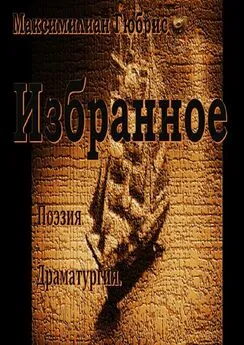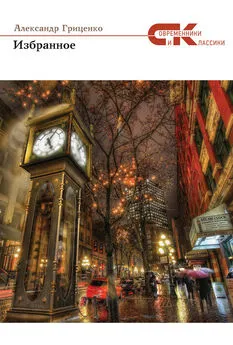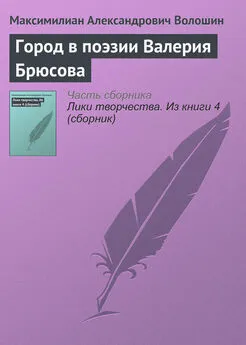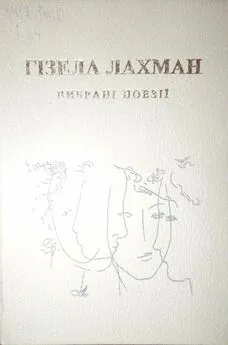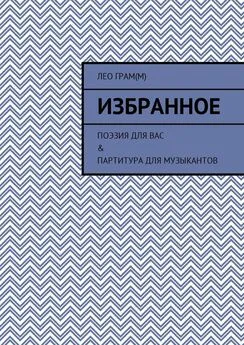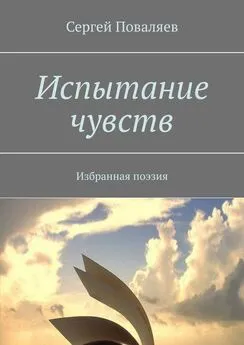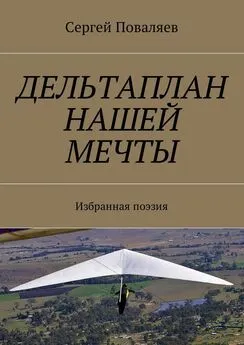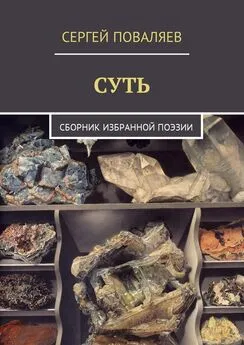Максимилиан Гюбрис - Избранное. Поэзия. Драматургия
- Название:Избранное. Поэзия. Драматургия
- Автор:
- Жанр:
- Издательство:Литагент Ридеро
- Год:неизвестен
- ISBN:9785448308772
- Рейтинг:
- Избранное:Добавить в избранное
-
Отзывы:
-
Ваша оценка:
Максимилиан Гюбрис - Избранное. Поэзия. Драматургия краткое содержание
Избранное. Поэзия. Драматургия - читать онлайн бесплатно ознакомительный отрывок
Интервал:
Закладка:
64
The poison of water hemlock (Cicuta Verosa) was the favorite type of the human-killing poisons before the era of modern cyanide (potassium cyanide) was started. As you all well know, Socratus was cruelly served with it in his prison…
65
This word «haddle» simply came out as a product of mixing apostrophic spelling between the words: «had-it-all» = «haddle». Not that I mentioned a figure of ghost could ever be as like that vulgarly person from commonhood, who after the certain «cup of safety & relaxation», in the certain moment and in the certain manner, would have cry: – «Oh! It’s just a haddle-waddle!»; – whether, me-think, this new-made word quite ironically points the character of action and the used jester closely to alive context of here-described situation within the poem.
66
Red Horse – apocalyptic image from Matth. 6: 4;
67
The proverb «poein» [to poeticize] in old Greek means «to create».
68
In this verse, I’d like to remind you that of why Achiles, a bloodiest hero, is the only personage, amongst all of his friends the Athenians, who was honored to be placed on the Eagean Islands, after his death: if you remember, he’s a one, never looking for the War and the fighting, right from the start; a peacefulest athletic character a nymphan, unlikely to all others, he had no purport and no desire to war at all, surely nor like Menelai the revenger, neither like Odysseus the profit searcher; Achiles the Marmedonian King kept the policy of neutralism on his Islands, and this kind of blissfulness I’ve mentioned to be a part of me-versed vision of a noble Aegenean of his past and his future, both.
69
"…And he felt in love with the mind of Patrocles»; – Pindar is the first, who emphasized this sort of ideal truth, by looking into the aspects of healthy men’s friendship with the clean, unpervert eye, yet before Aristotle explained it so in his treatises.
70
The «orphies» meant to be «the orpheisms» in shorten friendly use of this word, and all of you let never stay doubting then, that, originally, it relates to Orpheus the Archi-poetic Singer and to the thoughts around him and his themes, all Haides-raising.
71
This last line, here, also was thought to be written as: «What could be told, thus, of the sacrifice of loving note?» However, this second sense is rather more poetically difficult and emotionally complicated.
72
The year 2012, as you all might remember, was the expected year of the End of the World, what was promissed by Indian Calendar of Maya, so the reader can stay doubting not in those words of a poem; – accordingly, the year 2017 will be the year of 225th Birthday of P.B.Shelley, a big friend of J.Keats, what I suppose is mentioned to be somehow symbolical for all those who reads that poetry with their hearts.
73
This is a beautiful expression of John Keats from his literaturiously-remarkable Letter dated by 21st (22d or 27th, the world still guessing) of December 1817, in which he expressed that original thought of so him-called «Negative Capability», what especially has become a titled idea of the new-brought day in the World Poetic Calendar.
74
As you may know, in Roman Catholic Calendar, the date of death of St Thomas the Apostle, Thomas «the doubting», as he also used to be called in history, before 1969, was thought to be exactly on 21st of December. In that line, where I’ve been saying «on Sunday», firstly, I kept my eye on that coincidential truth, that the both days – of the Keats’ Letter and The Negative Capability Day 2014 – the Sundays. The rest of supposive guessing here could be of that, if St Thomas himself died, too, on Sunday, however this sort of exact truth for me is still unknown .
75
The original Latin root of the words the «negative», «negativism»; to those, who wonder, how really objective I am in using as such a great meaning in the tight context of the poem, I should answer by addressing their quests to the last lines of the Keats’ Letter, and so, by reminding them of the very pointed there the «about-Shelley’s»; – with that, you can find your own way to analize the pre-motivation of me-written line of «hand-shake»..
76
In fact, there is the second variant of this line: «…not samely, as the Beauty starts new history?» (…its newer history?); – so, let the readers be more enthusiastically creative, in cooperating their own vision with mine, in thinking that, how, and which way, towards the history, the Beauty universally improves itself.
77
Here, in this part of a poem, I’m bringing the drops of archi-Hellenic knowledge about that mystical ritual called the «envoking the shade». Homer, in his «Odyssey», explains it perfectly in the Songs 10—11. There, exactly, are the words about the giving blood to a shade; and that image, symbolically, I’ve used in my allegoric lines. (As we remember, Shelley himself, too, in his poems, quite often used to send his reader to a sacred meaning of the «blood and blood-sharing», whether it be in social or sexually-mystical context of his poetic works.)
78
I’m using the word «diaboli» here in proper Hellenic meaning of it, what means «columny» or, other way too, simply the «judging».
79
Luxe Ferro, the «Highest Light», and so Lucifer – as we know, is a name of a brightest star in the Sky, like that for ex. in Ovid, and which now days called simply as the Polar Star. – The Shelley’s Ghost was originally picturized in image of a starry-eyed dead. That’s how my Shade can see the reflected sparks of starry-light in the eyes of this-side-living Shelley.
80
P.S . – This poem far is not the representation or any kind of interpretation of Lynn’s fictional scenario with that strangest Shelley’s Henry of hers; and my idea, in these lines, was but of a sort of an author’s trying to picturize that possibly-objective «tete-a-tete» contact just between a Poet and his famous paranormal Ghost, and so, between the times of them too: between the Poet’s time with its past and future, and the Ghost’s time with its past and future indeed, closely to our measures; – however, we may know about it, that «twas a sort of result of that mental distortion happened to be in a cause of all the perfidy and calumny, which Shelley, in his life, have always been a victim and an arbitre of, and which was so impressively performed in Lynn Shepherd’s inventional book.
81
К началу поэмы, мне хочется заметить, что моей целью в этом произведении нисколько не являлось такое, чтоб изобразить здесь всю истинную биографическую историю отношений между Percy и Leigh (совершенно грамотно, по-русски, было бы здесь писать оное как Лий, или даже Лих; однако, в сравнении мной ново-транскриптируемому имени Персий (Шеллей, как это ещё в 19в), – в чём-то более поход. на Персей, – имя Ханта оставлено в транскрипции, привычной Русскому уху); – главной задачей написания сей поэмы для меня было найтись запечатлеть тот роковой момент спасения сердца Поэта, и именно в таком изнач. ракурсе Я подходил к теме их отношений средь всего круга друзей, и, делая этакое довольно бегло, многие из биограф. нюансов Я просто оставлял за некоей ненадобностью или же за чрезмерной, в том, оных импрессивностью, к примеру, как то, что есть факт тюремного заключения Ханта (по полит. вопросам) на 2 года: интеллектуал-джентльмен Ли Хант, проведя свой исправительный срок, вернулся обратно к своим делам, оставаясь всё тем же, в принципе, домашним и, во-многом, мягким характером; это – главное в канве сей фрагментарной истории. Иные могли бы возразить на это тоном глубоко-мудрствующего психолога: – так, что, дескать, возможно, если бы Ли не отсидел в тюрьме, он никогда бы не решился на столь радикальный поступок; однако, сами нюансы его отдельной биографии, связанные с пребыванием в заточении и пр., представляются быть настолько исключительными и, прямо сказать, неординарными (как то, к примеру, его привилегированное фортепиано, подаренное ему Байроном, за которым он, этак, и скрашивал свои тюремные дни), что это достойно скорее отдельной поэмы, нежели как попытки излишней тематической экстраординации в сим произведении, в котором заблуждать внимание читателя было бы, с точки зрения автора, нежелательно. Пока-что, так.
82
Труды и Платона, и Овидия входили в Оксфордский курс обучения в то время (нач. 1800х гг); – кстати, существует версия о том, что Шелли за все годы обучения в Оксфорде посетил только одну лекцию, а всё остальное время посвящал самостоятельному изучению книг, этак, занимаясь порой по 16 часов в день; как бы то ни было…;
83
«Заклинания есть суть словеса прекрасные» – известное изречение Платона;
84
Изофимия (isophymia) – общественное явление, обратное мегалофимии, – утверждающей приоритет само-оценки в людях и имеющей тенденцию к полит. доминированию, – изофимия – означает стремление к равенству и, в футуролог. тенденции своей, сходит к «уживотниванию», эффект тотальной секс. Брутализации, в чём, есть вполне закономерен (Ф. Фукайама, 1992);
Читать дальшеИнтервал:
Закладка:
